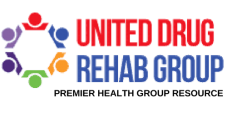Recent Study Shows Drastic Spike of Alcohol Use Disorders
The NESARC-III Survey
In 2013, the National Epidemiologic Survey on Alcohol and Related Conditions (NESARC-III) was published in JAMA Psychiatry. In this study, over 36,00 individuals from varying walks of life submitted to in-person interviews about their substance abuse, psychiatric disorders, and use of addiction recovery services. The study was led by Bridget Grant, Ph.D., who designed the survey to study alcohol use disorders under the guidelines of the new DSM-5 criteria. The conclusive findings of the survey were that nearly 30% of all adults in the United States have dealt with an alcohol use disorder during some point in their lives. For the years of 2012-2013, 14% of adults met alcohol use disorder guidelines, and 29% met the criteria for having alcohol use disorder at some point throughout their lives.
The study states that, “We generally found significant associations between 12-month and lifetime AUD and other substance use disorders, major depressive disorder, bipolar I disorder, specific phobia, and antisocial and borderline PDs when we controlled for sociodemographic characteristics and other disorders. Significant associations between persistent depressive disorder, posttraumatic stress disorder, panic disorder, and generalized anxiety disorder with lifetime AUD were also observed.” These findings continue to support the idea that there are common factors underlying in co-occurring mental health disorders and alcohol use disorders. This is important because it allows for researchers and health professionals to continue to identify risk factors for their patients.
Do You Have an Alcohol Use Disorder?
According to the DSM-5, there are 11 criteria for an AUD.
Alcohol taken in larger amounts or over a longer period than originally intended
Persistent desire but inability to quit or control alcohol use
Good deal of time spent obtaining alcohol
Cravings
Alcohol contributes to failure to perform major role obligations
Continued alcohol use, even when it causes recurrent social or interpersonal issues
Social or interpersonal activities given up, due to alcohol use
Continued alcohol use in physically hazardous situations
Continued alcohol use, even with knowledge of having physical and psychological issues
Tolerance
Withdrawals
When two to three are present, the severity would be classified as mild. Four to five criteria would call for a moderate severity, and six or more symptoms is classified as severe.
Where Can You Get Treatment?
United Drug Rehab Group specializes in developing personalized addiction recovery programs for each individual who comes to us for help with recovery. We know that everyone has had a different experience with addiction and that using a blanket approach to treatment doesn’t work very well. By creating personalized addiction recovery programs from a dual diagnosis approach, we are able to target the physical and mental side effects of each patient’s addiction. Our clinically managed detoxes are designed to eliminate worries about withdrawals and ease you through a relaxing detoxification process. Our network of providers will equip you with all of the necessary tools to remain sober once treatment ends. When you are near the end of your program, we will encourage you to utilize our professional preparation services that will get you ready for the work force, such as resume building and simulated interviews. Call one of our compassionate intake coordinators today with any questions you have about our addiction treatment programs.


